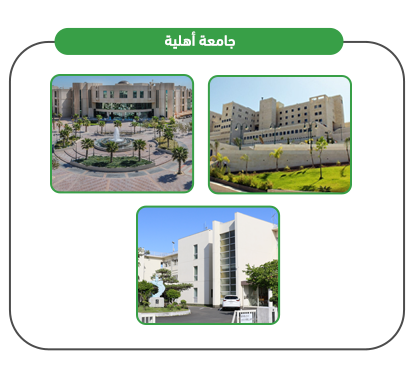The feasibility study for a private university project aims to conduct a comprehensive and integrated assessment of the economic, technical, and administrative aspects, ensuring the establishment of a leading educational institution that meets the needs of society and contributes to enhancing the quality of higher education. The study is based on an in-depth analysis of the target market to determine the demand for academic specializations and innovative educational programs, taking into account modern trends in education and changing labor market requirements. The study includes estimating the costs associated with establishing the project’s infrastructure, including equipping classrooms, laboratories, libraries, and sports facilities, in addition to calculating operational costs and potential revenues from tuition fees and other services. The study also focuses on legal and regulatory aspects, by identifying licensing requirements and accreditation of academic programs to ensure compliance with local and international standards. It should also be noted that the study includes developing effective marketing strategies aimed at attracting students and qualified faculty members, thus strengthening the proposed university’s position as a distinguished educational institution.

The Private University Project is a private educational institution that aims to offer pioneering academic programs that meet students’ aspirations and align with the evolving needs of the labor market. The university seeks to provide an advanced educational environment based on the latest technological means and educational methodologies, enhancing the quality of higher education and contributing to the preparation of qualified cadres capable of leading economic and social development. The university offers a diverse range of academic programs spanning scientific, literary, technical, and engineering disciplines, with a focus on advanced curricula that keep pace with the latest global developments. The university places special emphasis on attracting qualified and experienced faculty members, while supporting scientific research and encouraging innovation to enhance academic excellence. On the practical level, the university seeks to develop strategic partnerships with international and local institutions to provide practical training opportunities for students, giving them a competitive advantage in the labor market. The Private University Project represents a model of distinguished higher education that enhances the quality of educational outcomes and places the proposed institution at the forefront of academic choices for students aspiring to a promising and bright future.



Academic programs that meet the needs of the labor market.
High-quality education with a qualified faculty.
Modern facilities and advanced educational technologies.
Partnerships with the labor market and training opportunities.
Diverse student activities.
Flexible scholarships and funding programs.
Locally and internationally accredited degrees.
Exchange opportunities and partnerships with international universities.
Executive summary
Study project services/products
Market Size Analysis
Risk Assessment
Technical study
Financial study
Organizational and administrative study

The Kingdom of Saudi Arabia is the largest Gulf country in terms of spending on education, spending approximately 25% of its general budget on the education sector.
Total education allocations in the Kingdom of Saudi Arabia for the academic year 1437/1438 AH (1997-1998) amounted to 211,836 million riyals.
The total number of students in the Kingdom at the primary, intermediate, and secondary levels reached 7,277,317, representing 22% of the Kingdom’s population.
The total number of students in the primary level reached 3,734,692 in 2016, with males accounting for 51%.
The total number of students in the intermediate level reached 1,682,509, with males accounting for 51.8%.
The total number of students in the secondary level reached 1,860,116, with males accounting for 51.7%. The Makkah and Riyadh regions accounted for 48% of the number of students in the Kingdom of Saudi Arabia in 2016, with 27.9% for the Makkah region and 20.1% for the Riyadh region.
